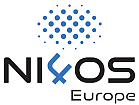Subject: аllosensibilisation
Subject: alloantibody
Subject: Hemolytic Disease of the Fetus and Newborn
Subject: immunization
Subject: red blood cells
Subject: IgIG (hyperimun gamaglobulin)
Subject: antenatal – postnatal, prophylaxis
Year: 2014
Type: Article
Title: The Significance of Imunohematology Research in Relation to Menagement of Hemolitical Diseases of the Newborn in Republic of Macedonia
Author: Emilija Velkova
Abstract: Intorduction: The hemolytic disease of the fetus and the newborn (HBFN) is a clinical syndrome at which the basic patho-physiological disorder represents a hemolytic anemia of the fetus or the newborn. Besides the RhIG prophylaxis it still represents one of the reasons for morbidity and mortality of the fetus and the newborn. Goal: Prompt discovery of allosensibilisation to RBC antigens during pregnancy and successful management of HBFN, in order to decrease morbidity and mortality of the fetus and the newborn. Materials and methods: The study comprises in total 23 800 patients, 14 858 pregnant women and 8 842 newborn babies. The screening and identification of anti RBC’s antibodies detected in total 216 alloantibodies, out of which 81% (175) had a clinical significance. Out of the above mentioned 164 alloantibodies (65,9%) belong to the Rh system. The most often reason for a severe hemolytic disease is the anti-D antibody. The HBFN symptoms of mild and moderate degree demonstrated 32,5%, and 18,9% had symptoms of severe fetal suffering, and almost half of them (48%) were with or with mild HBFN and had no need of therapy. In 15% it was about alloantibodies of other Rg antigens: anti-C, anti-E and anti-c, at which in most cases there were no signs of HBFN, or it showed weak symptoms (89%), just one case of anti-c ended with intrauterine death. Conclusion Anti D antibody represents the most often reason for severe HBFN and displays a need of intrauterine transfusion and exsangvino transfusion. Anti-c is the only antibody that demonstrated the same potential for severe HBN as the anti-D. The most often reason for alloimmunisation of the mother is the lack of RhIG prophylaxis (97,8): postnatal, antenatal and in case of possible sensible conditions during pregnancy. Thus, there is a need and an outmost importance of elaboration and adoption of the National programe for RhIG prophylaxis in Republic of Macedonia.
Publisher: Scientific foundation Spiroski
Relation: Open Access Macedonian Journal of Medical Sciences
Identifier: oai:repository.ukim.mk:20.500.12188/10891
Identifier: http://hdl.handle.net/20.500.12188/10891Identifier: https://oamjms.eu/index.php/mjms/article/view/oamjms.2014.0779/182Identifier: 1857-9655


